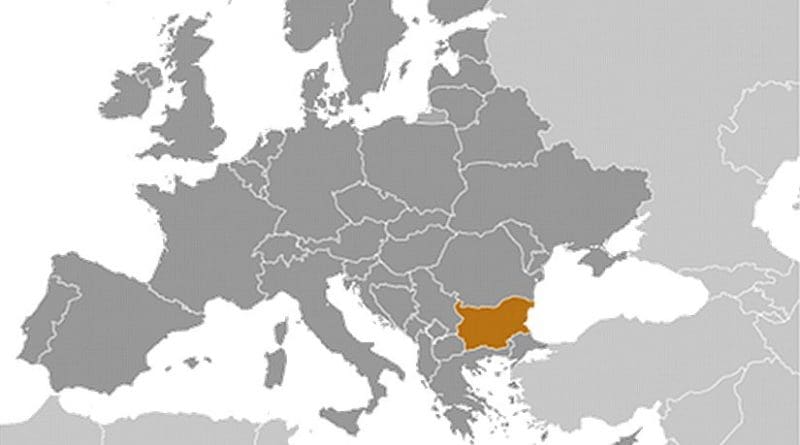Bulgaria Apologizes To Its Turks For “Revival Process”
By SETimes
By Svetla Dimitrova
Nearly 22 years after the end of communism in Bulgaria, the country’s parliament adopted a declaration last week condemning a campaign in the second half of the 1980s aimed at the forceful assimilation of the country’s ethnic Turks.
Launched by Todor Zhivkov’s totalitarian regime in 1984, the so-called “Revival Process” culminated in 1989, when more than 360,000 Bulgarian citizens of Turkish descent were forced to flee their homes and seek shelter in neighbouring Turkey.
As part of the campaign, the country’s communist authorities initially tried to force ethnic Bulgarian Muslims, and then ethnic Turks, to change their Turko-Arabic names to “traditional” Bulgarian ones. There were cases of beatings, killings and unlawful detention of people who refused to do so.
The declaration, proposed by the right-wing Democrats for Strong Bulgaria (DSB) party of former Prime Minister Ivan Kostov, was adopted on January 11th with the backing of 112 of the 115 lawmakers that attended the session, while the remaining three abstained.
“We firmly condemn the assimilation process against the Muslim minority living in the Republic of Bulgaria, including the so called ‘Revival Process’,” the document said. “We declare that the expulsion of more than 360,000 Bulgarian citizens of Turkish descent was a form of ethnic cleansing conducted by the totalitarian regime.”
The declaration further urged the country’s chief prosecutor and judicial authorities to make sure that the lawsuits against the alleged masterminds of the campaign be brought to a conclusion.
The DSB insisted that the perpetrators of the crimes committed against the ethnic Turks during one of the darkest episodes in Bulgaria’s modern history should not be left unpunished due to the expiration of the statutory period of limitations.
The adoption of the document was hailed by Turkish experts and the government in Ankara, who described the move as belated.
Welcoming Bulgaria’s decision “to face up to a dark period of its history that caused many people to suffer”, the Turkish foreign ministry also urged Sofia to take steps to bring to justice those responsible for the campaign and “to redress in all its aspects the grievances” those who were expelled as a result.
Muzaffer Kutlay, a Balkan expert with the International Strategic Research Organisation (USAK) in Ankara, said the declaration was “an important step forward for Bulgaria to settle accounts with its past” and towards a further improvement in its ties with Turkey.
The move “will provide the two countries with an opportunity to establish confidence between them,” Kutlay told SETimes. “Also by acting with the virtue of apologising, Bulgaria gained a lot of credibility in the sight of Turkey.”
Urging Bulgaria to “continue this trend in a sustainable manner,” she also believed there was need for the Balkan nation to “take sincere steps in the field of education in Turkish language”.
Bilal Simsir, who served as Turkey’s ambassador to Tirana from 1985 to 1987, downplayed the importance of the declaration.
“This decision does not have any significance in practical terms, because Bulgaria does not recognise the concept of ‘minority’ that has a place in the international law,” he told SETimes.
“If, and only if, Bulgaria recognises minority rights in the country in line with international agreements, such declarations of the Parliament and the related apologies will have a real meaning.”
Bulgarian Helsinki Committee Chairman Krassimir Kanev told SETimes that he doubts that the masterminds of the campaign of the late 1980s “will ever face justice, despite the declaration’s call for this”.
Bulgarian experts, however, viewed the parliament’s move as a positive step.
Harlan Alexandrov, a lecturer on social anthropology at the New Bulgarian University in Sofia, said the assembly’s move should have “a healing effect” for the members of the country’s ethnic Turkish community.
“Some of them still remember the violence, others have been told about it by their parents,” he told SETimes.
Alexandrov told SETimes that Turks should now feel “relieved and become less susceptible to manipulations”. There have been recurrent warnings by members of the Movement for Rights and Freedoms (MRF), particularly its founder and leader, Ahmed Dogan, that Bulgarians could stage a second “Revival Process” against ethnic Turks.
The party was founded in 1990 to represent the interests of the Turkish ethnic minority. It has been represented in all assemblies in the past two decades and has been a member of three coalition governments since 1992.
Former MRF deputy chair Kasim Dal, who spent three and a half years in prison in the 1980s after refusing to change his name, said he supported the declaration, stressing however that “it should have been adopted much, much earlier”.
“Better late than never,” he told SETimes on Tuesday, adding that this should have happened back in the early 1990s, so that the architects of the campaign “could have been brought to justice”.
SETimes correspondent Menekse Toykay in Istanbul contributed to this report.

